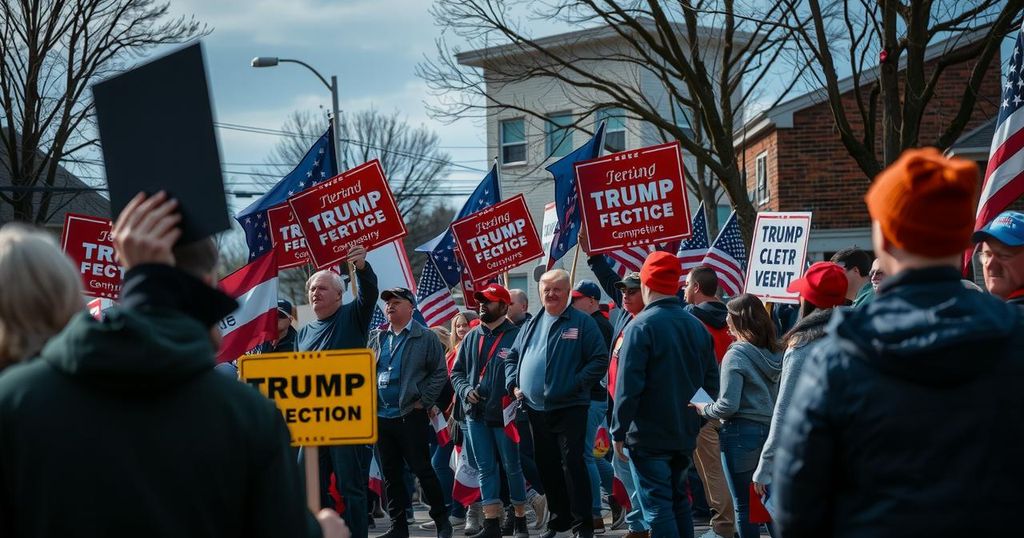Trump’s Support Grows in Philadelphia: An Insight into the 2024 Election Results

In the 2024 election, Trump received over 136,700 votes in Philadelphia, despite registered Democrats outnumbering Republicans significantly. Voter turnout was about 60%, lower than in 2020, but Trump’s appeal grew among older and economically impacted voters. Concerns about healthcare, economic difficulties, and border security emerged as key factors driving support for Trump, particularly in neighborhoods traditionally aligned with blue-collar workers.
In the 2024 presidential election, Northeast Philadelphia emerged as a significant region for Trump supporters, reflecting an increase in votes for the Republican candidate amidst a predominantly Democratic city. Registered Democrats vastly outnumber Republicans, with over 769,400 Democrats compared to approximately 125,100 Republicans. Nevertheless, Trump secured more than 136,700 votes in Philadelphia, illustrating a marked growth since his 2016 and 2020 campaigns. Voter turnout was about 60% this year, a decline from 66% in 2020, but still showcased Trump’s appeal among specific demographics, including older voters and those frustrated by economic challenges, healthcare costs, and immigration policies. Notable individuals like Mary Ann Becker and David Cruz expressed their concerns over economic conditions, healthcare affordability, and national security, further highlighting the diverse motivations that propelled Trump’s support in certain Philadelphia neighborhoods. The narrative of discontent with the current administration resonated strongly, signaling a shift within communities traditionally aligned with Democratic values.
The article examines the results of the 2024 presidential election in Philadelphia, where Donald Trump garnered a notable number of votes despite the city’s overwhelming Democratic majority. The analysis is rooted in the demographic trends, voter sentiments, and particular neighborhoods like Bustleton and Port Richmond, recognized as strongholds for blue-collar workers and law enforcement families. It also emphasizes the declining voter turnout compared to the previous election, underscoring the evolving political climate in urban areas traditionally dominated by the Democratic Party.
In summary, the 2024 election highlighted a significant, albeit nuanced, Republican presence in Philadelphia, underscored by voter sentiments focused on economic issues and national security. Trump’s appeal appeared particularly resonant among lower-income and older voters, many of whom expressed concerns about affordability and immigration policies. The results suggest a potential realignment of certain demographics within the city, indicating an evolving political landscape that warrants further examination and coverage.
Original Source: whyy.org







